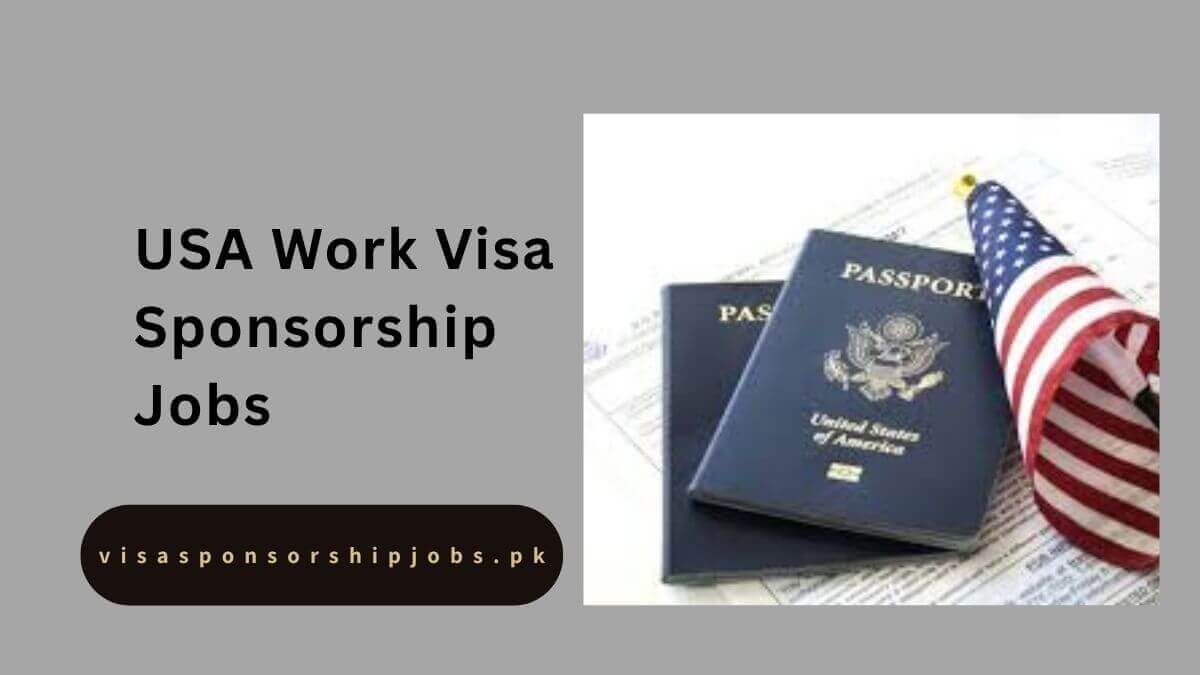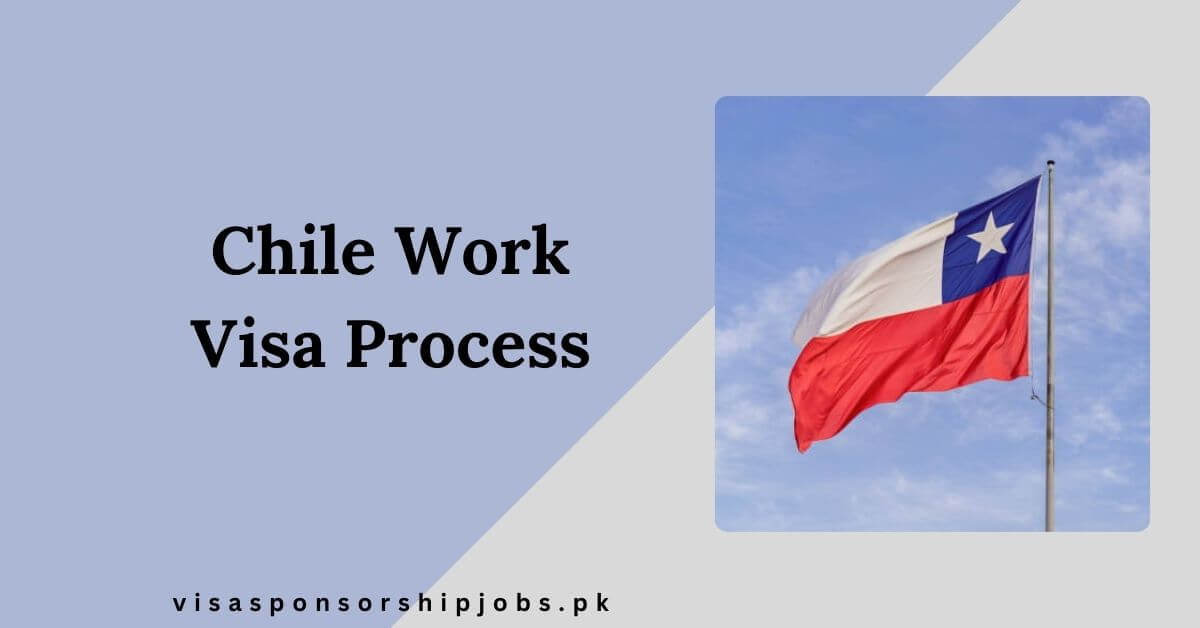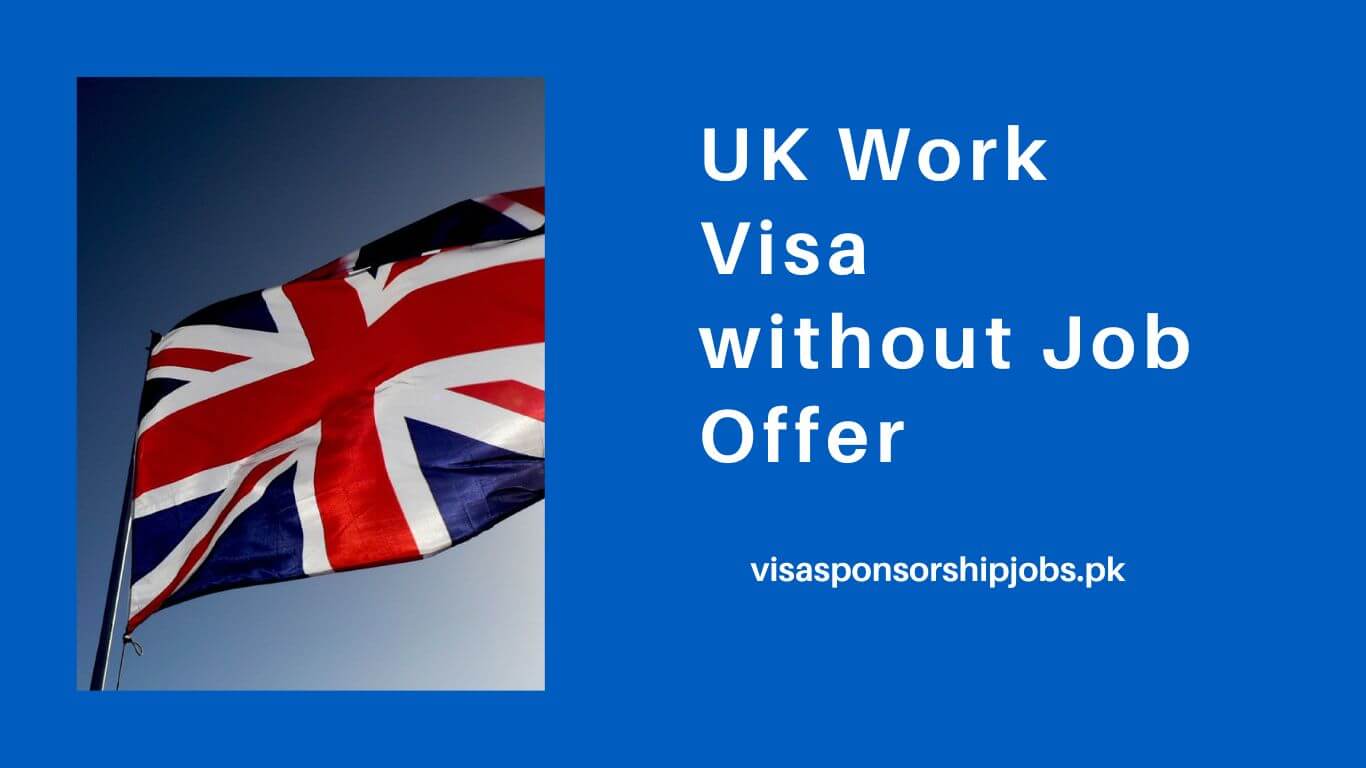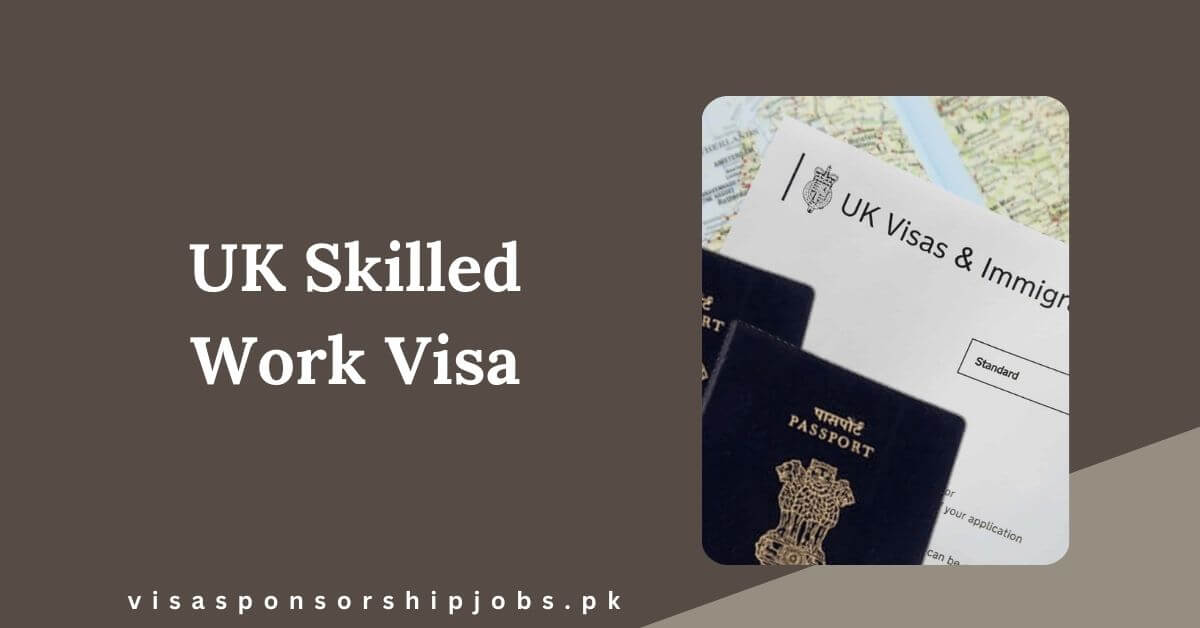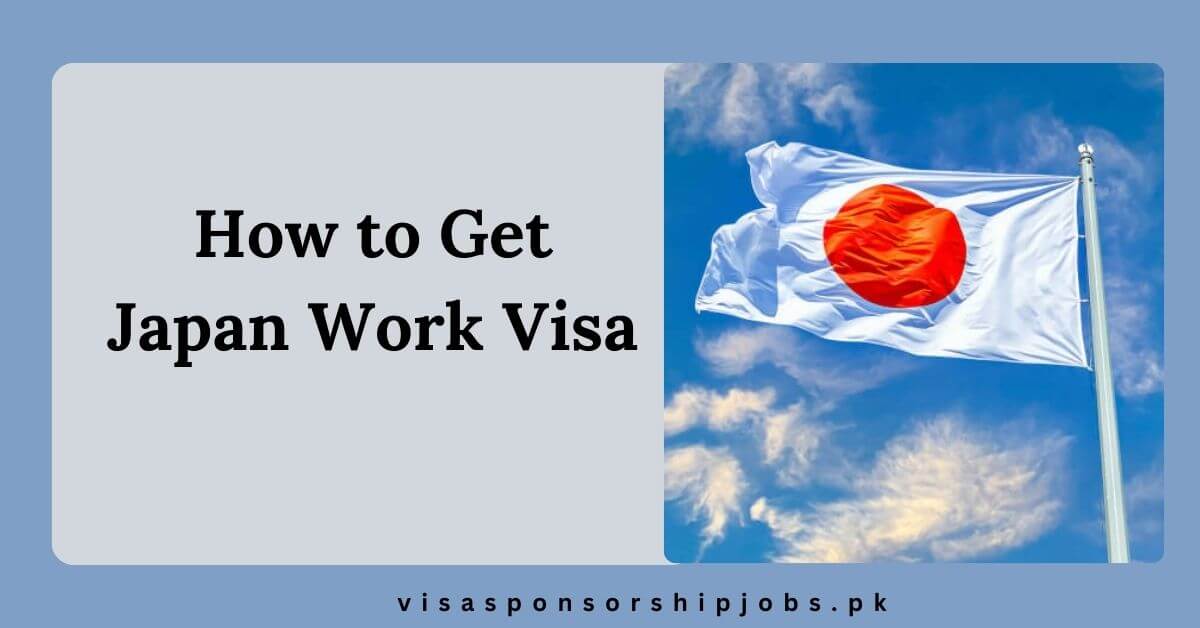USA Work Visa Sponsorship Jobs 2025
In 2025, the United States will continue to provide a diverse array of employment opportunities for international professionals who are in need of work visa sponsorship. Obtaining such positions necessitates the implementation of effective job search strategies, the identification of sectors with a high demand for foreign talent, and a comprehension of the visa sponsorship process.
Check Also: USA Student Visa—Requirements & Application Process
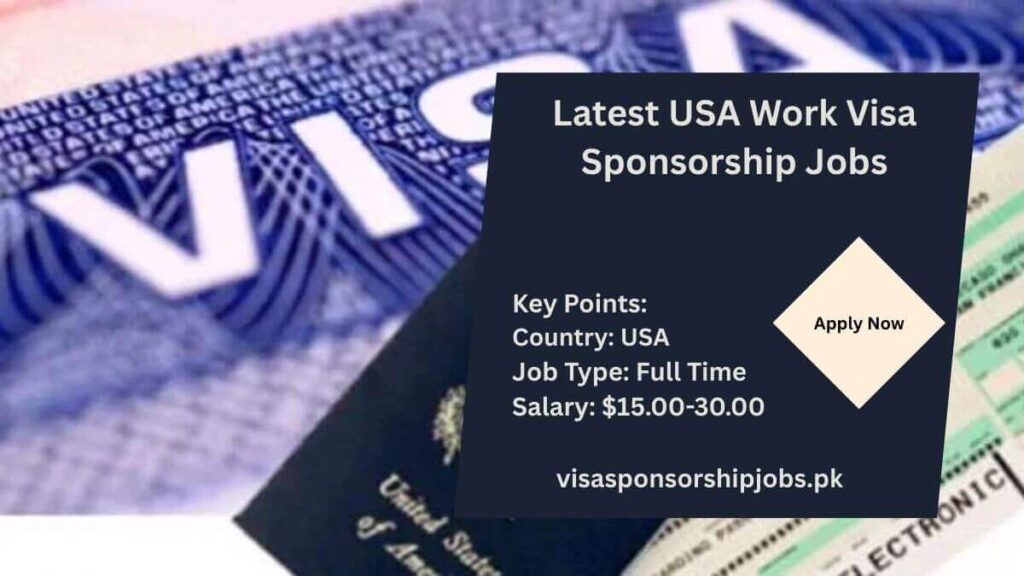
Top Visa Sponsorship Jobs:
Here are good job options for candidates:
1. Software Developer:
- Job Description: Develop and execute software systems, construct applications, and evaluate them.
- Minimum Qualification: A Bachelor’s degree in Computer Science or a comparable field. 1 to 3 years of experience
- Salary range: $80,000 to $120,000.
- Benefits include retirement, health, and the ability to work from home.
- How to Apply: Utilize job boards like Indeed, LinkedIn, or the organization’s career website to submit your application. Guarantee that the employer sponsors visas.
- More Info
2. Registered Nurse:
- Job Description: Collaborate with other healthcare professionals, administer medication, and provide patient care.
- Needs: College degree Requirements for Nursing: A U.S. nursing licence and relevant work experience
- Salary per year: $60,000 to $90,000.
- Features: Health insurance, paid time off, and additional benefits
- How to submit an application: Directly submit your application to healthcare facilities or hospitals that sponsor international nurses.
- More Info
3. Data Scientist:
- Job Description: This position involves the analysis of data, the development of predictive models, and the support of data-driven decisions.
- Requirements: A minimum of one year of experience in any data science language, such as Python or R, and an undergraduate degree in Data Science or a related field.
- Annual salary: $90,000 to $130,000.
- Benefits: career development opportunities, high pay, and incentives for performance.
- How to Apply: It is advisable to apply for such positions directly from the company’s website or through technological employment boards, as the majority of technology companies provide visa sponsorship.
- More Info
4. Mechanical Engineer:
- Responsibilities and Tasks: Manage process manufacturing; anaanalyzechanical issues; design mechanical systems.
- Required qualifications for the position include a bachelor’s degree in mechanical engineering and relevant work experience.
- Salary and Benefits: $75,000 to $110,000 annually.
- Retirement plaplans,mprehensive insinsurance, andid absence.
- To apply, consult company websites or engineering employment boards for sponsorship opportunities and submit your application for the relevant positions.
- More Info
5. Civil Engineer:
- Responsibilities: Financial data analysis, estimation, and assistance with precise financial calculations for a variety of enterprises.
- Qualification: A bachelor’s degree in civil engineering is required; experience may be considered.
- Salary per year: 70,000 USD to 100,000 USD.
- Health insurance, paid annual leave, and 401K plans are among the benefits that are available.
- How to apply: Sponsors, numerous government initiatives, and other substantial organizations recruit international engineers via their websites.
- More Info
6. Marketing Manager:
- Job Description: The Marketing Manager is responsible for the development of market plans, the management of campaigns, and the monitoring of market performance.
- Qualifications: Possessing a bachelor’s degree in either business or marketing, as well as some experience in marketing management.
- Salary per year: $80,000 to $120,000
- Benefits: the ability to work remotely and a health insurance incentive
- How to apply: The majority of multinational corporations offer visa sponsorship; obtain the job posting from a portal like Glassdoor or LinkedIn.
- More Info
7. Healthcare Assistant:
- Job Description: Assistant to healthcare providers. The patient was provided with care and other related services.
- Qualification: Experience and a health assistant certificate
- Pay: $30,000 to $45,000 annually
- Health insurance, paid time off, and training are among the advantages.
- How to Apply: Healthcare organizations frequently sponsor assistant positions; applicants should submit their applications directly through the hospitals’ websites.
- More Info
8. Chef:
- responsibilities include the preparation of food, the supervision of personnel, and the assessment of quality.
- Qualification: Experience in a real professional kitchen, in addition to completion of culinary education.
- Pay: $40,000 to $70,000 annually
- Benefits: Paid vacation time, health insurance, and meals
- How to Apply: Walk-in applications are accepted at restaurants and hospitality companies that sponsor laborers, particularly in tourist destinations.
- More Info
9. Hotel Manager:
- Job Description: Manage the daily operations of the hotel and provide guidance to patrons and employees.
- Requirements: A bachelor’s degree in hospitality management and experience in hotel management are required.
- Salary Range: $60,000 to $90,000 annually.
- Benefits: Medical insurance that is free and offers performance-based incentives.
- Application Procedure: Secure sponsorship from substantial hospitality organizations. Browse online employment postings on hospitality job boards or company websites.
- More Info
Conclusion:
International professionals are afforded a wide range of employment opportunities in the United States market. Consequently, individuals will be able to secure fulfilling employment in the United States by making a wise decision regarding the type of opportunity and its sponsors.
Frequently Asked Questions:
How do I find a sponsor for a job in the USA?
Job Boards: Use job boards like Indeed, Glassdoor, and LinkedIn to find job postings that offer visa sponsorship. Direct Applications: Apply directly on company websites for positions that interest you. Recruitment Agencies: Consider working with recruitment agencies that specialize in placing foreign workers
How to get sponsored to go to America?
To apply for an immigrant visa, a foreign citizen seeking to immigrate generally must be sponsored by a U.S. citizen or lawful permanent resident immediate relative(s) or prospective U.S. employer and have an approved petition before applying for an immigrant visa.
How do I get sponsored for a work visa for USA?
As explained, getting a sponsorship employment visa requires you to have an offer from a US employer. The US employer must send you a contract to sign, which will then be part of the sponsorship documents. For some nonimmigrant visas, the Department of Labor first requires a Labor Certification
